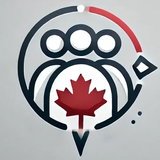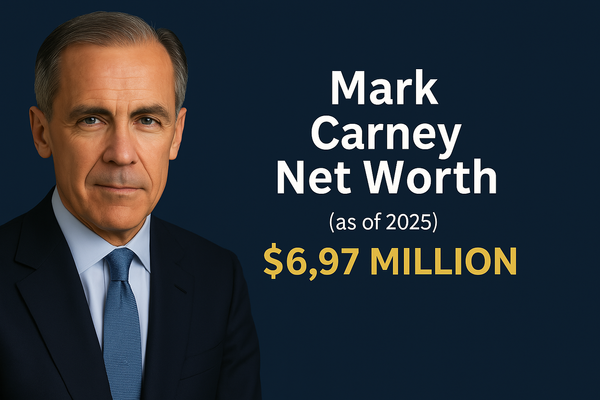Can Mark Carney Really Speak French? The Truth Behind His Language Skills
Mark Carney's French speaking skills have become a vital question as the former Bank of England governor positions himself to lead the Liberal party. He could make Canadian history as the first person to become Prime Minister without any public office experience, which makes his language skills even more important.
His French proficiency has raised some eyebrows lately. A Montreal debate showed Carney's French was the weakest among four candidates. He made a notable mistake when he said "We agree with Hamas." The stakes are high since Liberals hold 33 of Quebec's 78 ridings. A federal election might happen next spring, so his French communication skills will shape his political future.
Mark Carney's Educational Background and Language Training
Mark Carney's experience with the French language started in Canada. He was born on March 16, 1965, in Fort Smith, Northwest Territories. His educational background helps us understand his current language skills better.
Early education and exposure to French
Carney moved to Edmonton, Alberta when he was six years old. He grew up speaking mostly English. His time at St. Francis Xavier High School showed his academic brilliance. Sources suggest he played on both English and French "Reach for the Top" teams during high school, which gave him some exposure to French. His father, Robert James Martin Carney, ran as a Liberal candidate in the 1980 federal election. This family background helped young Carney understand why being bilingual mattered so much in Canadian politics.
University studies at Harvard and Oxford
Carney's academic path led him to prestigious schools, though he didn't focus much on French. He earned his Bachelor's degree in Economics with high honors from Harvard University in 1988 on a partial scholarship. He spent his Harvard years as a backup goalie for the varsity ice hockey team.
Oxford came next. At St. Peter's College and Nuffield College, he completed:
- Master of Philosophy (MPhil) in Economics in 1993
- Doctor of Philosophy (DPhil) in Economics in 1995
Margaret Meyer supervised his doctoral dissertation "The dynamic advantage of competition". These degrees proved his expertise in economics but didn't say much about his French skills.
Professional language requirements at Bank of Canada
High-ranking Canadian officials usually need to speak both English and French. Carney's French remained "as labored back when he was governor of the Bank of Canada as it is now".
His French fluency didn't improve much even though he worked at a bilingual institution. Many people found this surprising since federal leaders needed to be bilingual. Reports show Carney could probably qualify for government management positions that needed a Canadian Language Benchmark level of seven. This meant he could handle everyday work conversations, though not always easily.
Carney became an outstanding economist through his education. Yet his language training didn't focus on developing the French skills that Canadian political leaders typically need.
Assessing Carney's French Proficiency Level
Mark Carney faced a tough test of his French language skills on the debate stage in Montreal. The former Bank of Canada governor's French speaking came under close watch. Everyone wanted to see if he could speak French well enough to be a potential Canadian Prime Minister.
The Montreal debate performance
Carney struggled through his first major French test during the Liberal leadership debate in Montreal. Quebec's political commentators weren't impressed at all. They rated his French as the weakest among all four candidates on stage. His performance looked even worse next to Montreal-born Frank Baylis, who showed much better French fluency. The moderator seemed frustrated as Carney took too long to express himself.
Notable mistakes and slip-ups
Carney made his biggest mistake when he said "we agree with Hamas" instead of explaining that candidates shared the same position about Hamas. Chrystia Freeland had to step in quickly to fix this error. The problems didn't stop there. He couldn't understand when the moderator told him "vingt secondes" (twenty seconds) were left. His unclear response made the moderator switch to English. He also needed Freeland's help to remember the French word for "supply management".
Expert linguistic evaluations
Media reviews of Carney's French were not kind:
- Le Journal de Montréal gave him a barely passing grade of 5 out of 10, putting him last among all candidates
- Reviews pointed out his "convoluted" sentences, saying he "spoke hesitantly" with words that were "hard to follow"
- McGill professor Daniel Béland backed up what Quebec commentators saw—Carney's French skills lagged behind other candidates
Canadian Language Benchmark standards
Experts think Carney could meet the requirements for government management jobs that need a Canadian Language Benchmark level of seven. This level means someone can handle everyday conversations and understand moderately complex texts. Political debates need much more than that - speakers must show fluency under pressure. The Liberals hold 33 of Quebec's 78 ridings, so Carney's French skills matter a lot to his political future.
How Carney's French Compares to Other Political Leaders
Mark Carney's struggle with French stands in stark contrast to what we just need from our political leaders today. Looking at Carney and other Canadian leaders shows us how language skills have become crucial in national politics.
Current Canadian party leaders' French abilities
Carney faces tough competition when it comes to language skills. Conservative leader Pierre Poilievre and NDP leader Jagmeet Singh both show strong French fluency. Their skills became obvious when Carney chose not to join TVA's French-language debate - a show that pulls in Quebec's highest viewership. His decision drew criticism from his rivals quickly. NDP deputy leader Alexandre Boulerice called it "very insulting to Quebec". Bloc Québécois leader Yves-François Blanchet pointed out that Carney claimed he could stand up to Donald Trump but lacked the courage to debate in French.
Former Prime Ministers' language trips
Canadian leaders' path to bilingualism tells an interesting story. Lester B. Pearson was our last one-language prime minister, who served two generations ago. Nine prime ministers since then have shown they can work in both languages. Some spoke French perfectly - Brian Mulroney's French was so good that French speakers thought it was his first language.
A 2016 Nielsen poll shows that 86% of Canadians believe the prime minister should speak both languages. Stephen Harper changed his view about bilingualism and learned French after he saw how important it was politically. One expert put it simply: "not knowing French is a fantastic way to hobble yourself in the race for nearly 25% of the country's federal Parliamentary seats".
International central bankers and multilingualism
Central banking worldwide has made speaking multiple languages standard practice. Many banks now use multiple languages to reach more people and stay transparent. The European Central Bank, Deutsche Bundesbank, and Swiss National Bank all work in three main languages.
Banks use this approach for practical reasons. Sharing similar information in different languages helps avoid translation problems and keeps public confusion down. Central banks now know that clear communication across languages helps keep markets stable and manages economic expectations better.
Carney's Efforts to Improve His French Skills
Mark Carney works quietly behind the scenes to improve his bilingual skills after his well-documented French-language struggles. His dedication shows a politician who understands French fluency's importance in Canadian leadership, though results remain mixed.
Recent language coaching
Carney now takes intensive French lessons with specialized advisers. La Presse recently revealed he's getting "a crash course in Quebec culture". These coaches help him learn about popular Quebec artists like Cœur de pirate, Les Cowboys Fringants, Jean Leloup, and Robert Charlebois. This cultural immersion aims to build deeper connections with Quebecois voters beyond just learning the language.
Practice strategies before debates
Carney knew his language limitations before the Montreal leadership debate. Political science professor Daniel Béland pointed out, "Some people criticized his French after his inaugural speech in Edmonton, saying it wasn't that good". He spent much time preparing for the debate because he knew people would watch him closely. Yet his performance still showed major gaps in fluency.
Public speaking in French outside formal settings
Carney's French usage varies widely outside structured debates. He didn't understand a French-speaking journalist's question about potential conflicts of interest at an Iqaluit press conference. During an interview with Radio-Canada host Patrice Roy, he hesitated when asked about Quebec culture and said: "I know the culture, the hockey, the music, and I like the humor of Quebec". He couldn't name the only Quebecois player on Canada's 4 Nations Face-Off hockey team, even with help.
Carney seemed open to joining TVA's French debate when asked in French at a news conference—answering "Why not?"—but his campaign later clarified he would only participate in the official Leaders' Debates Commission events. Critics saw this retreat as his way to avoid French-language scrutiny.
Conclusion
Mark Carney's French language skills are nowhere near the standards expected from Canadian political leaders. His economic expertise and exceptional international experience remain unquestioned. Yet his struggle with French creates a major challenge to his political ambitions, especially in Quebec where the Liberal Party holds strong influence.
Carney recognizes this linguistic barrier. He takes French lessons and immerses himself in the culture to show his steadfast dedication, though these efforts might come too late for his immediate political goals. These steps might not be enough given the decades-old tradition - Canadian prime ministers have managed to keep their functional bilingualism for two generations. This reflects both political necessity and public expectations.
A significant decision awaits Carney. His current French proficiency ranks lowest among leadership candidates and could limit his political future. The outcome of his intensive language training remains uncertain. One fact stands clear - success in Canadian federal politics needs genuine bilingual capability, not just simple French comprehension.
FAQs
Q1. How proficient is Mark Carney in French? Mark Carney's French proficiency is considered limited. While he can likely handle everyday work situations, his performance in debates and public speaking events has revealed significant struggles with fluency and comprehension.
Q2. How does Carney's French compare to other Canadian political leaders? Carney's French skills are notably weaker compared to other Canadian political leaders. Current party leaders like Pierre Poilievre and Jagmeet Singh demonstrate greater fluency, and bilingualism has been a standard for Canadian Prime Ministers for two generations.
Q3. What efforts is Carney making to improve his French? Carney is currently undergoing intensive French preparation, including language coaching and cultural immersion. He's receiving a "crash course in Quebec culture" to better connect with Quebecois voters, though the effectiveness of these efforts remains to be seen.
Q4. How important is French proficiency for Canadian political leadership? French proficiency is crucial for Canadian political leadership. A 2016 poll showed that 86% of Canadians believe the Prime Minister should be bilingual. Fluency in both English and French is considered essential for effective communication and political success, especially in Quebec.
Q5. Has Carney's lack of French fluency affected his political aspirations? Yes, Carney's limited French skills have posed a significant challenge to his political ambitions. His poor performance in French-language debates and interviews has led to criticism and skepticism about his ability to effectively lead and communicate with French-speaking Canadians, particularly in Quebec where the Liberal Party has a strong presence.


